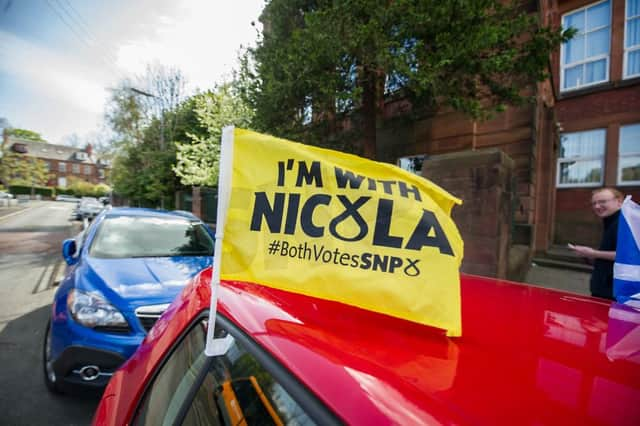Ewan Crawford: Scotland's political landscape realigned by SNP


At the time those constituency wins didn’t seem that significant as we tried to cope with an overall loss and a poor second place.
In fact, 13 years ago something was happening under the radar in urban areas, which few people in Scottish politics detected.
Advertisement
Hide AdAdvertisement
Hide AdBut over time the importance of those results become clear, culminating in the astonishing SNP clean sweep of Glasgow constituencies in the early hours of yesterday morning.
Across the country the SNP took 59 of the 73 constituency seats – an extraordinary performance for a party seeking its third consecutive term in office.
Although Nicola Sturgeon came up just short of an overall majority (in a system, remember, designed for coalition or minority government) the SNP is still by far the dominant political force in Scotland.
This time around it isn’t necessary to investigate individual constituencies to try to work out where the balance of power between the SNP and Labour may be heading.
This week’s Holyrood contest confirms a comprehensive realignment of the political landscape in the SNP’s favour.
The vital task now for the party leadership is to demonstrate the same sense of momentum and energy that was shown after the Scottish election wins in 2007 and in 2011.
More and more it seems what happens in the first few months or even weeks of a new administration can have a big impact on the next election in five years’ time.
At Westminster in 2010, Labour never recovered from its failure in the initial weeks to counter the Conservative narrative of a reckless Labour Party which couldn’t be trusted with the public finances.
Advertisement
Hide AdAdvertisement
Hide AdAfter last May’s election the Tories were quick to label Jeremy Corbyn a dangerous extremist – a characterisation that will surely contribute to a further Labour calamity in the 2020 general election.
And that is precisely why the constitutional question in Scotland will remain alive. Despite their strong performance in winning 31 seats, the Conservatives achieved just 22 per cent of the vote on Thursday.
The impact of what could be decades of a Tory Westminster government – emboldened perhaps by the party’s recovery in Scotland – is a distinctly unappetising prospect for most people here.
The first minority SNP administration was characterised by real ambition for the future, the search for consensus where possible and a relentless focus on good government aimed at improving people’s lives.
A similar sense of purpose, right from the start, is what’s required, both for the party and the country, this time round.
• Ewan Crawford is a former special adviser with the Scottish Government